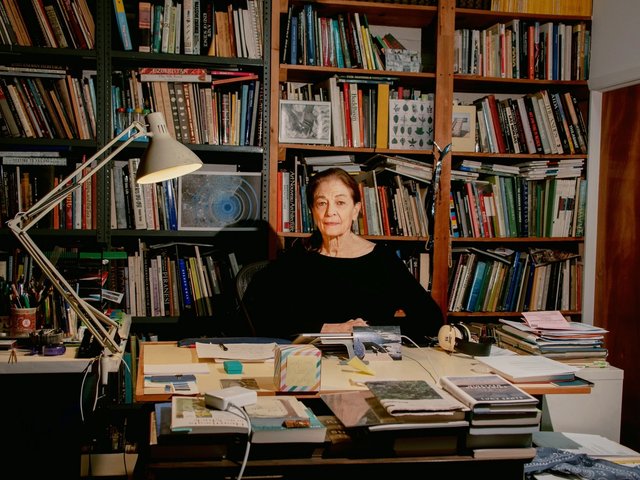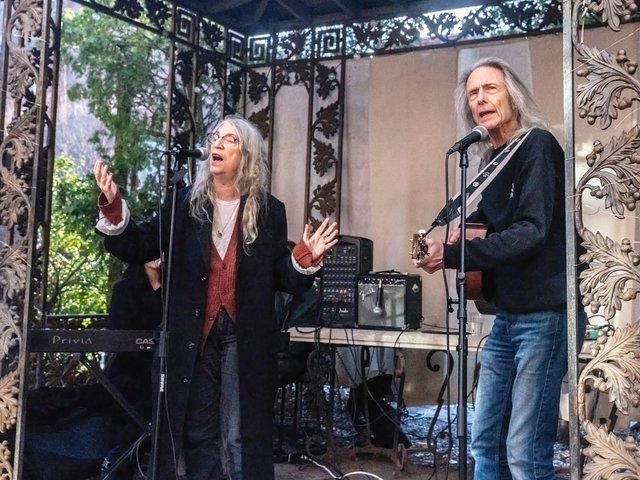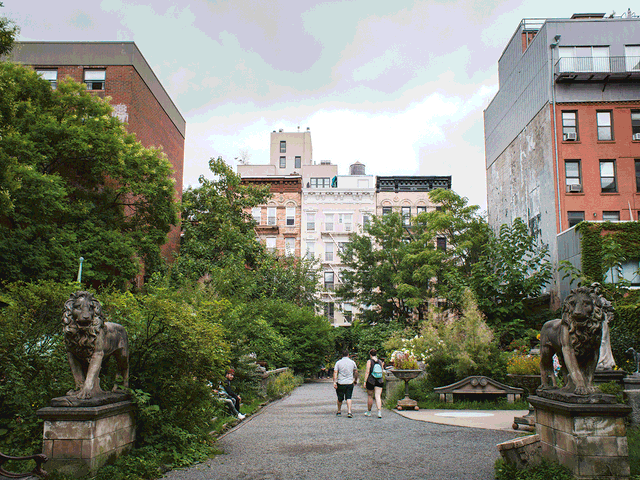The non-profit that manages the Elizabeth Street Garden, the sculpture garden tucked away in Manhattan's bustling Soho neighbourhood, has filed a federal lawsuit against New York City over officials’ plans to demolish the garden and build mixed-use affordable housing in its place.
Last week Joseph Reiver—the non-profit’s director who, with his father, the late gallerist Allan Reiver, transformed a once-abandoned city lot into a sculpture-filled garden starting three decades ago—sued the city seeking protections for the Elizabeth Street Garden, arguing it is a work of art protected by the Visual Artist Rights Act (Vara).
Vara was passed in 1990 as an amendment to the US Copyright Act and in certain circumstances grants artists some rights over their work regardless of ownership. Under the act, works of “recognised stature” are protected from “intentional or grossly negligent destruction”, according to Reiver’s lawsuit, which argues that Elizabeth Street Garden is “a sculpture and a social sculpture” eligible for protection under Vara, as it consists of carefully-curated sculptural elements and landscaping.
Reiver made a similar claim in an interview last year with The Art Newspaper: what was first built as an “outdoor extension” of his father’s Elizabeth Street Gallery next door “really became a work of art in its own right”, he said. This, the lawsuit argues, would “prevent the intentional or grossly negligent destruction (or) intentional distortion, mutilation or other modification” of the garden by the city.
Vara has a mixed success rate when it comes to protecting sites: in 2018, a New York judge cited the act in awarding $6.75m to street artists whose work at the 5Pointz warehouse complex in Long Island City, Queens, was destroyed during redevelopment into high-rise luxury condos. More recently, Vara's scope has seen limitations, as when the artist Mary Miss sued the Des Moines Art Center over its plans to demolish her 1996 land art installation Greenwood Pond: Double Site. The art centre’s officials argued the project had deteriorated and become dangerous for visitors. Last year, the case reached a stalemate when a judge concluded that while the art centre could not demolish Miss's work without her permission under Vara, the act did not require the museum to repair the Land art project. (That dispute ended in a settlement that will see Miss receive $900,000 and her outdoor installation demolished.)
The fight for the Elizabeth Street Garden's preservation has strong support in the neighbourhood and beyond. The garden has “achieved recognition as a work of recognised stature, both as a physical work of visual art and as an example of social sculpture inspiring prominent members of the artistic community”, the complaint reads. The lawsuit, filed 18 February, includes letters of support from the film-maker Martin Scorsese, the actor Robert de Niro and the author, musician and artist Patti Smith.
The city says its proposed development, called Haven Green, would create 123 affordable studio units for seniors—with 30% set aside for formerly homeless residents—and ground retail spaces along with offices for Habitat for Humanity, the city’s partner in the project. The proposal also includes about 6,700 sq. ft of public green space within the development (the garden as-is covers more than 20,000 sq. ft). “The only way to solve our housing crisis is to build more, and this forward-thinking project allows us to do just that, while creating a community space truly for all,” a spokesperson for the development project told The Art Newspaper last October.
Opponents of the development contend that the affordability restriction’s initial regulatory period is only 60 years, at which point the property will be rent-stabilised; Reiver called the move a “Trojan horse to acquire land” for development.
The city owns the land and has been leasing it out to the Reivers since the early 1990s, but in 2013 officials set their sights on the garden as a site for new housing. The two sides have been duking it out in court ever since. Last October, the city served an eviction notice that was paused weeks later pending an eviction appeal. Oral arguments were heard earlier this month.
“There's a lot of ways you can address the housing crisis without destroying a community garden,” Reiver told The Art Newspaper last year, adding that “once Elizabeth Street Garden is gone, New York will never have something like this again”.






